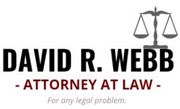
Governments want their citizens to invent, build, and create new and original works because it improves the general welfare. To encourage this behavior, governments enact laws that offer legal protection for original creations. In the U.S., these protections are divided into four categories. Below is a discussion of each and an explanation of what you or your attorney needs to do to protect your work from unapproved copying.
What Kinds of Intellectual Property Protection Exist in the U.S.?
1. Patents
A patent is a government license that gives you the right to make, use, or sell an invention without competition for 14 to 20 years. Patents cover processes, machines, and manufactured goods. Patentable inventions must be new, useful, and non-obvious.
Keep a thorough record of the invention process to prove it was your idea. Then, hire a patent attorney to assess its financial possibilities, complete a patent search, and make sure someone else hasn't already patented something similar. Then, you can apply for a patent through the United States Patent and Trademark Office (USPTO).
2. Trademarks
Trademarks are granted for unique words, phrases, symbols, sounds, smells or color schemes. A trademark protects the underlying product's name, description, or marketing efforts rather than the product itself.
McDonald®'s golden arches, the shape of a Coca-Cola® bottle, and the sound of the MGM® lion's roar are all examples of trademarks. To apply, you must clearly describe the mark and how it applies to the associated product(s).
3. Trade Secrets
Trade secrets are undisclosed proprietary business practices that give your company a competitive advantage. Common examples include recipes, formulas, and business strategies.
 The U.S. doesn’t license trade secrets as it does patents and trademarks, so it is your responsibility to treat confidential information as secret and valuable. If you fail to mark relevant documents "confidential," someone could misappropriate the information and, as part of their defense, claim it was not an actual trade secret.
The U.S. doesn’t license trade secrets as it does patents and trademarks, so it is your responsibility to treat confidential information as secret and valuable. If you fail to mark relevant documents "confidential," someone could misappropriate the information and, as part of their defense, claim it was not an actual trade secret.
4. Copyright
A copyright is the right to control the use of written works and works of music, art, and architecture. They are for works of authorship that have been written or drawn on paper, recorded on tape or digitally, or published online. You, therefore, cannot copyright a tune you’ve hummed or a story you've worked out in your head. However, once it’s in a fixed, tangible form, you have the sole right to decide how it is distributed.
If you need an intellectual property attorney, contact David R. Webb. Attorney at Law in Lincoln, NE. He and his team have served clients in and around Lancaster County since 1981. In addition, they also specialize in estate planning, wills, and probate law, as well as child support, child custody, paternity, and other family law matters. Call them at (402) 477-7577 to schedule a consultation. Learn more about their practice areas online.
About the Business
(5 reviews)
Have a question? Ask the experts!
Send your question

